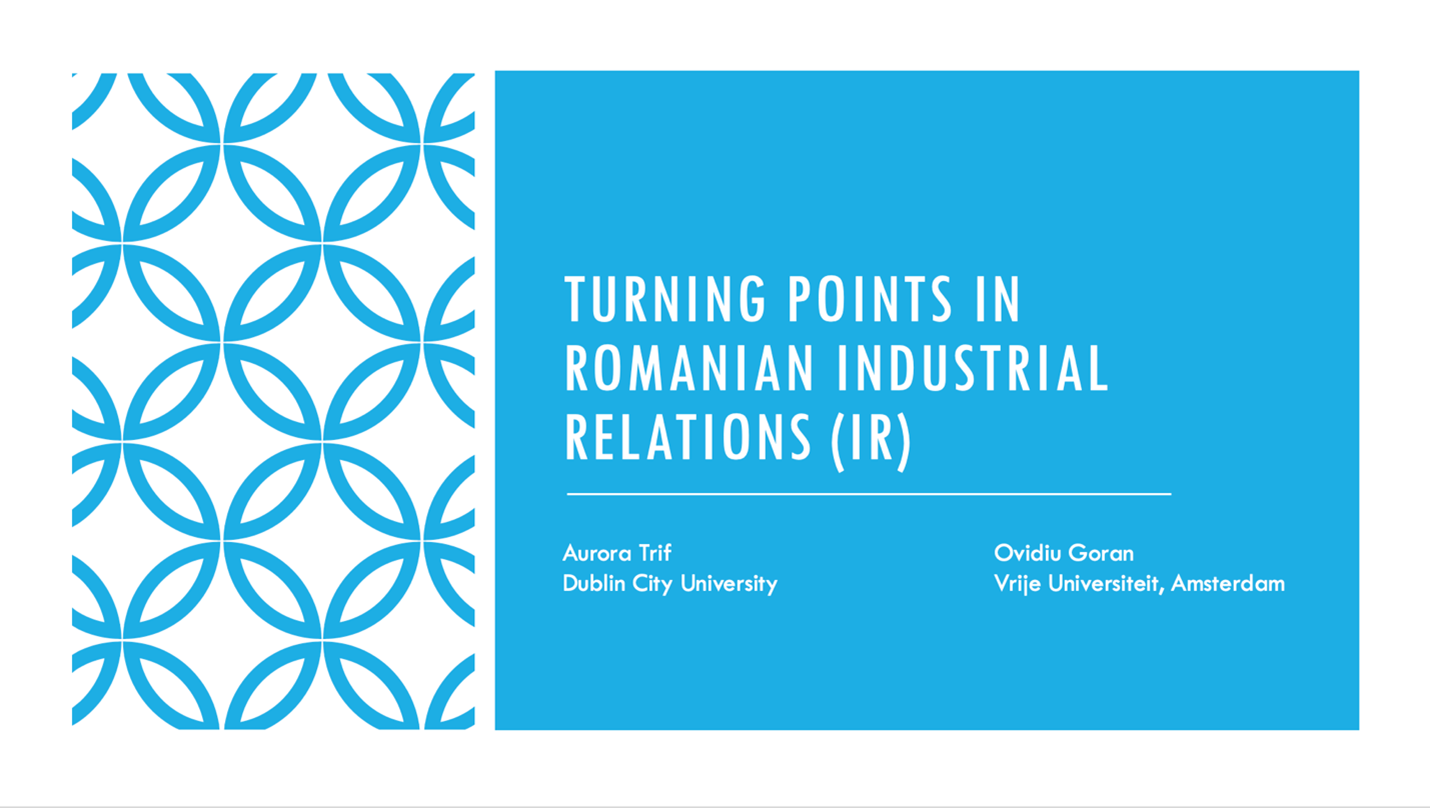
Turning points in Romanian industrial relations: Quo vadis post-2022?
Aurora Trif
Dublin City University – Business School
Ovidiu Goran
Vrije University, Amsterdam School of Business and Economics
INTRODUCTION
Industrial relations (IR) refer to managing interactions between workers and their representatives (e.g. trade unions– hereafter unions, works’ councils, etc) on the one hand, and employers and their representatives (e.g. employers’ associations or managers) on the other hand, including joint regulations that set the terms and conditions of work (Trif and Paolucci, 2019). Generally, there are two interrelated preconditions for joint regulations by these two parties. The first one is that the legal provisions do not prohibit their freedom of association, collective bargaining rights, and rights to take industrial action. The second precondition is the existence of representatives of workers and employers (IR actors) who can either voluntary or be obliged by statutory provisions to regulate together labour standards. Unlike in Anglo-Saxon countries where IR actors prefer voluntary interactions, there is a strong tradition of relying on statutory provisions to manage the relations between IR actors in Romania (Trif, 2004). Accordingly, the turning points in the Romanian IR have been associated with radical changes in the rights of workers and employers to associate, bargain collectively, and take industrial action. Besides, solely when these changes endured at least 10 years are considered as turning points in IR in this chapter.
Based on these criteria, there have been three turning points in the IR in Romania linked to broader political and economic changes in Europe. The introduction of the communist regime in Romania following the Second World War led to the first major turning point, while the collapse of the communist regime led to the second one. After 1989, Romania developed a distinctive type of neo-liberal society with weak state institutions, high centralization and coverage of collective bargaining (Table 1) and relatively high mobilization power of unions until the 2008 crisis (Bohle and Greskovits, 2012). In exchange for the unions acceptance of economic reforms seeking to transform the centrally planned economy into a market-economy during the 1990s, Romanian governments accepted unions’ demands for a favourable institutional environment (e.g. erga omnes extension of sectoral and cross-sectoral collective agreements) (Table 1). Although Romania had one of the most supportive IR legal context for unions in the region de jure until 2008, de facto it was often difficult to enforce labour regulations (Trif, 2016). Furthermore, the preconditions for international financial assistance imposed by the Troika (i.e. the European Union, the International Monetary Fund and the European Central Bank) have contributed to undermining fundamental union rights (Table 1) during the 2008 international financial crisis, which led to the third turning point. In contrast, the EU instruments adopted after 2017 to support social rights have triggered important legal changes in 2022 strengthening de jure fundamental union rights in Romania (Goran et al., 2023), while it is too early to assess whether these changes will lead to another turning point de facto.
